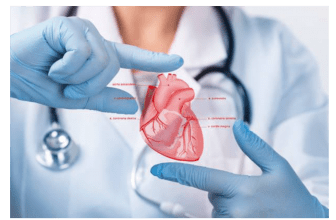A person’s heart rate and rhythm changes at many points during the day. It is common to feel it beating differently during physical activity and stressful moments. Although fluctuations in heart rhythm are normal, sometimes irregular or abnormal heartbeat can become a severe problem.
Arrhythmia refers to an irregular heartbeat. When left untreated, it can certainly bring about serious consequences like stroke or cardiac arrest. Did you know that cardiovascular illness is the number one cause of death on our planet? Here the role of a top heart hospital in Bangalore becomes important.
Finding out the Risk Factors for Heart Arrhythmia
The risk factors for this condition consists of:
- Certain kinds of heart disease like high blood pressure. Abnormal tissue deposits can also lead to conditions like tachycardia or quick heart rate. It can also lead to bradycardia or slow heart rate. They interfere with the heart’s electrical system.
- Atrial fibrillation is a kind of arrhythmia whose risk increases with age.
- Congenital conditions can also increase the risk of arrhythmia. For instance, a congenital defect in the heart can negatively impact the electrical system in the heart.
- Increased levels of minerals like potassium, calcium, and magnesium can also cause heart arrhythmia.
- Alcohol, cigarettes, and other addictive substances can also trigger arrhythmia.
This disorder is treatable through the advanced treatment services of heart disorders imparted by the top heart hospital in Bangalore.
Symptoms of Heart Arrhythmia
Heart arrhythmia happens due to changes in heart tissue and actions or in the electrical signals that regulate your heartbeat. These changes can be a result of any injury, damage from an illness, or genetics.
People do not generally feel any symptoms, but some can experience an irregular heartbeat. Some people may also faint or find it difficult to breathe. Some major signs that indicate heart arrhythmia are:
- A fluttering sensation in the chest.
- Rapid heartbeats.
- Slow heartbeats.
- Pain in the chest.
- Difficulty in breathing.
- Symptoms like anxiety and sweating can accompany heart arrhythmia symptoms.
- A person may also experience fatigue and dizziness.
In India, a majority of people die due to undiagnosed heart diseases. Bangalore has some of the best medical facilities in the country.
A medical expert in a top heart hospital in Bangalore diagnoses arrhythmia through an ECG or an electrocardiogram test. After that, other tests are done, and the doctor recommends suitable medicines to the patient to resolve this issue.
When to Consult a Doctor?
Arrhythmias may make a person experience premature heartbeats. Other symptoms relate to the heart not being able to pump properly due to increased or decreased heartbeat. Patients should immediately seek medical care if they experience these signs and symptoms frequently.
Anyone experiencing these symptoms repeatedly when they should not expect them should immediately consult a doctor at a top heart hospital in Bangalore. A kind of arrhythmia that is deadly is ventricular fibrillation.
It happens when the heart beats with quick and erratic electrical impulses. It makes the lower chambers or ventricles in the heartbeat useless when they should be pumping blood.
When the heartbeat becomes ineffective, blood pressure decreases, and blood supply to major organs gets cut. Thus, heart arrhythmia should not be ignored or left untreated. With proper treatment and care, patients can recover and feel their best.
